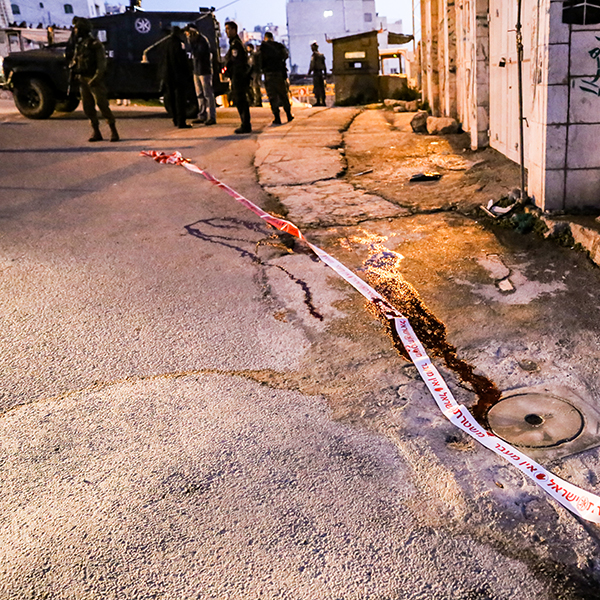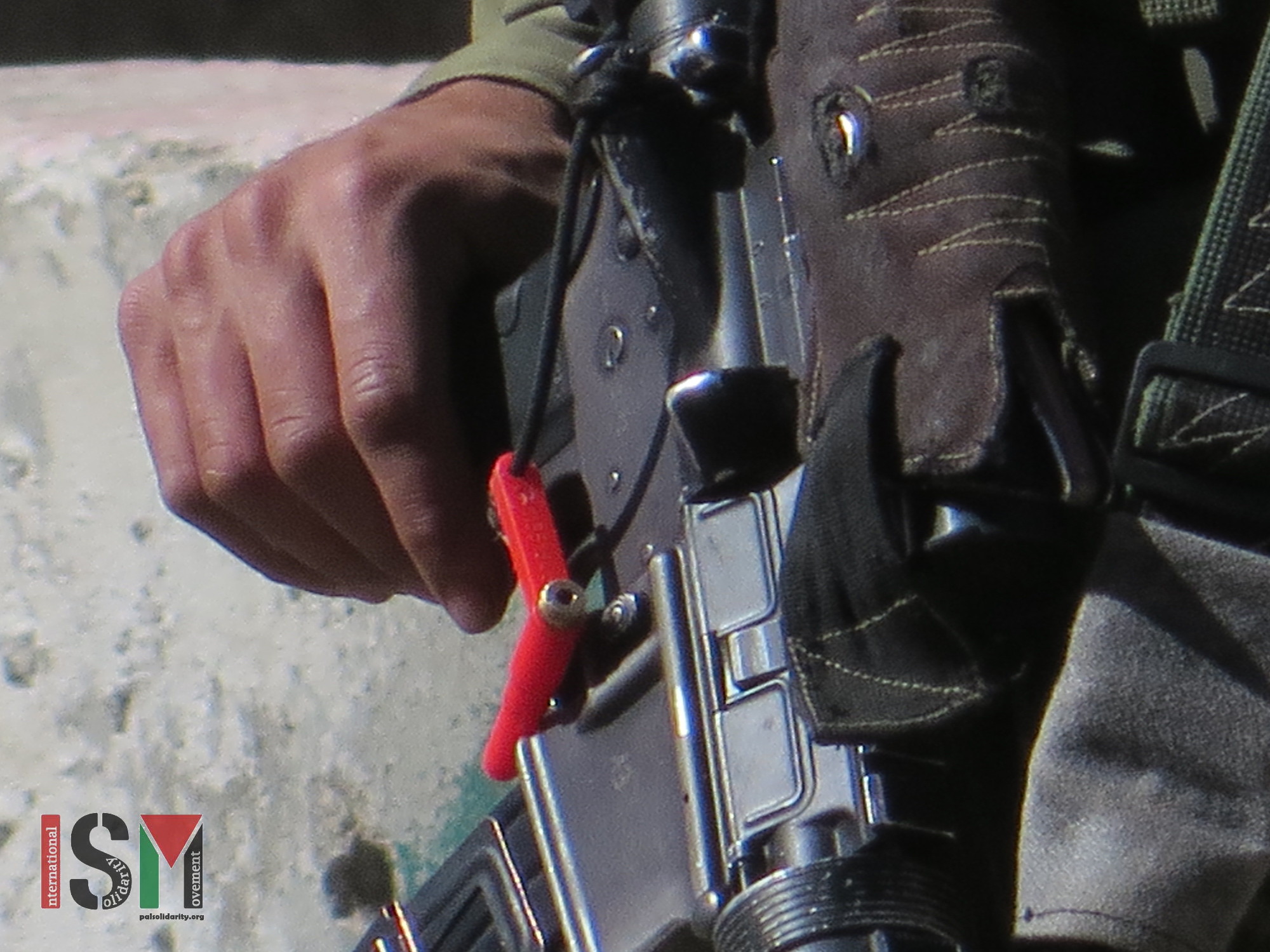Tag: Ethnic Cleansing
-
Children face fear and threat of violence after young woman shot in Hebron
22nd February 2016 | International Solidarity Movement, al-Khalil team | Hebron, occupied Palestine A day after 21-year old Yasmin al-Zarou was gunned down by Israeli forces when passing the Salaymeh checkpoint, many of the children were forced to walk right past where she had layn on the ground bleeding – where her blood is still…
-
Palestinians aggressively harassed by Israeli forces on their way to prayer
19th February 2016 | International Solidarity Movement, al-Khalil team | Hebron, occupied Palestine On 19th February 2016, as Palestinians were on their way to the Friday prayer in Ibrahimi Mosque in occupied al-Khalil (Hebron), Israeli forces stopped, delayed, body-searched and harassed them. Like every Friday, Palestinian men, women and children made their way through the…
-
Children living in closed military zone enjoy day of fun under the shadow of the occupation
13th February 2016 | International Solidarity Movement, al-Khalil team | Hebron, occupied Palestine On February 13th 2016 Youth Against Settlements in occupied al-Khalil (Hebron) organised a children’s activity in front of Shuhada Street checkpoint. Around 50 children from the neighbourhoods located on the H2 (entirely Israeli military-controlled) side of the checkpoint – Tel Rumeida and…



